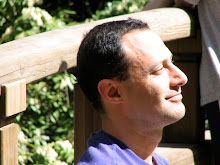
When I first walked through Ssang-yongdong in mid-July, I noticed clothing racks in windows from the apartments of the higher levels of these large white cement buildings. I recall thinking; “I think that is so cool that folks don’t use their dryers during the summer to save electricity. What a great conservationist lifestyle.” That was until I made my way into a few different apartments and observed that they do not have dryers. Hummm. Interesting how some of the buildings actually support the environment like this. My small building is one of them. We have a washer on each floor that is used by about six or seven tenants each.
By late summer, I was getting the feeling that it was not just a building specific thing to not have dryers. So, being Curious George, the next time I went to E-Mart and Lotte Mart; I looked briefly at the major appliances to see if they actually sold dryers. They do. BUT, there are about ten washers to one dryer available for purchase.
See, in Korea, apartments are made with this little area of whatever width the apartment is as an extension of the living room or studio that is closest to the window for placing your clothes on a dryer rack to dry. They do not use clothes dryers. Really. They do not use clothes dryers. They wash their clothes in these really cool efficient washers that look more like a huge bucket than a washer. It has small agitators, and no, I am not talking about George Bush or his friends, I mean the little fins that protrude from the base of the washer to help shake things up. Everything about the technology and design is simple, very simple. In fact, there is a button that you can push and the washer will shake for about ten seconds to determine which water level is necessary and what cycle it will run at. It then displays how long it will take on a red LED and begins it’s filling of the machine with water. One does not have to figure anything out, the machine does it all for you. If you are one of those controlling types that need to fuss and be in charge of everything in your life, there are buttons for you to set the cycles and water level yourself. Otherwise, push the red button and come back in 50 minutes to empty your clothes out of the washer to bring your damp clothes to your little ‘balcony’ to dry. Done. Minimal natural resources are used and simple, real simple. Korean technology is aimed at simplicity. American technology is aimed at lack of simplicity, the more you spend, the more buttons and gadgets there are to operate and repair when they break. Simplicity.
My space does not have one of those little ‘balconies’. I have had to get a little more creative. I hang a clothesline across my space when I need to dry clothes and hang shorts and pants on little hooks that are stuck to the ceiling for other stuff. Big things I hang outside my large south-facing window to dry quicker. I love it! It so much fun each time figuring how to find a way to get everything dry without interfering with my life. I have not bought a drying rack yet; I don't like them or the way the look. So, being an American, I have found a way to take technology that simplifies and complicate it. Thank God shoelaces do not have any electrical appliances for me to complicate. More importantly, I have found a way to leave the world of “I need my clothes dry now!” to “My clothes will be dry when they dry” and get added moisture in my room during winter nights as a bonus. I started not using dryers for the most part about a decade ago. I am glad that the option has been taken from me completely.
What would your life look like without a dryer?








